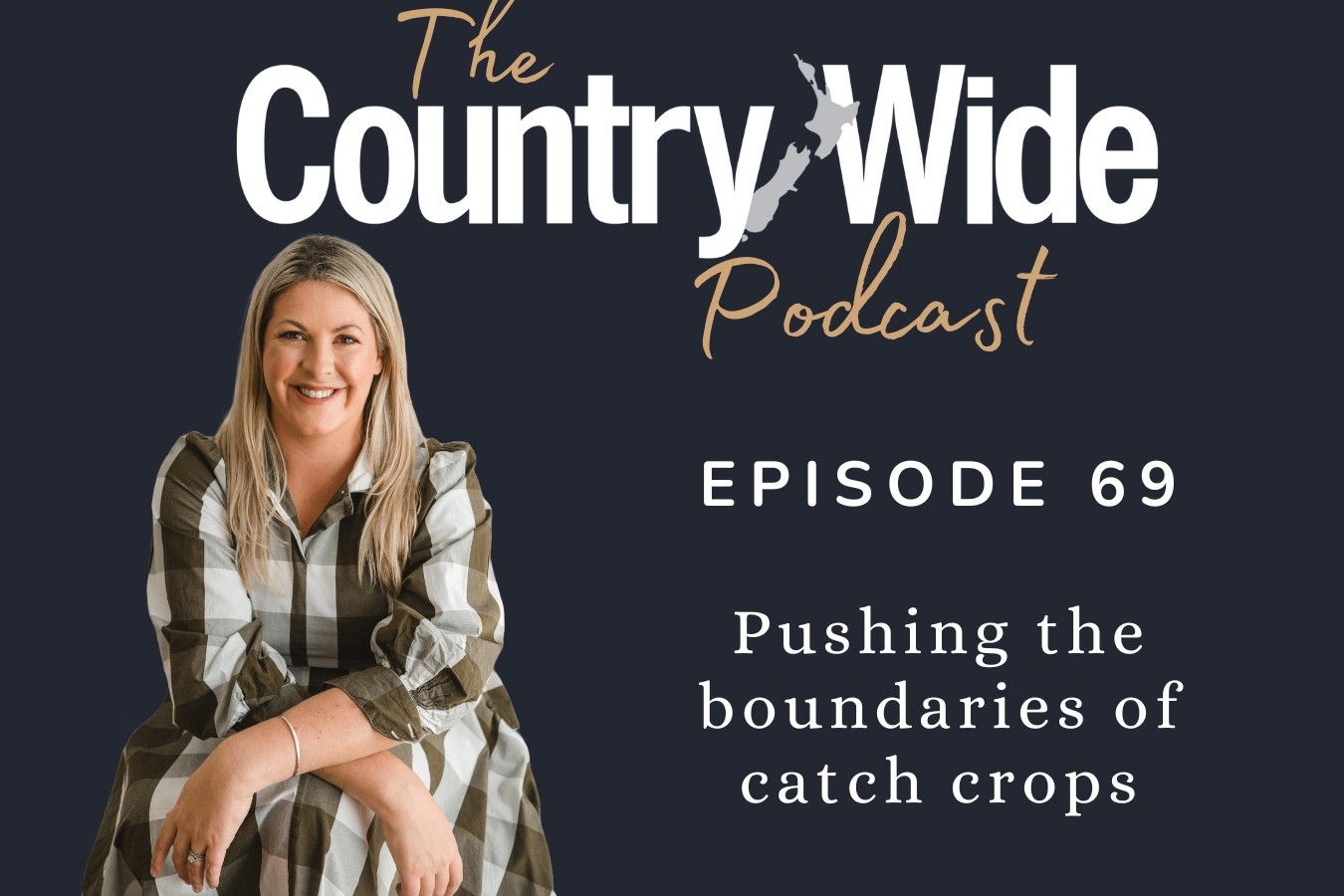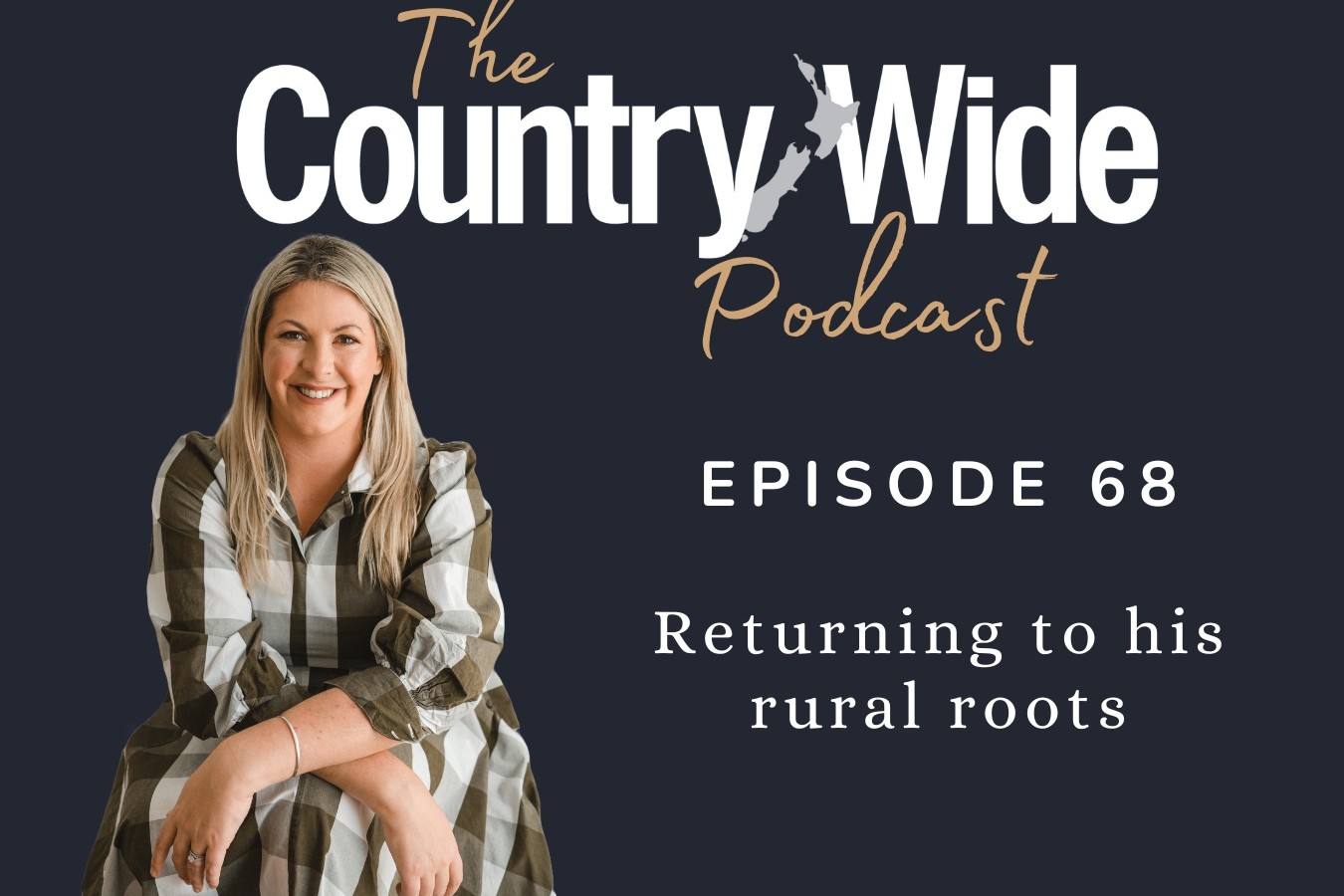Stuart and Jo Fraser have swapped the dust and heat of Western Australia for the challenges of a North Canterbury hill country station. Sandra Taylor reports.
Compared to the stinking hot mechanics’ workshops in Western Australia’s iron-ore mines, the Mt Benger sheep-yards on a 30C-plus day are a relatively benign environment.
Stuart Fraser never expected the heat tolerance he developed during the five years he worked as a Perth-based diesel mechanic working in mines to be useful in his farming career. But Stuart never expected to go farming.
Rather Stuart and his wife Jo (both 27) had a clear plan. After five years building capital in Perth they would return to Canterbury and open their own business servicing diesel machinery.
Early last year, one phone call early changed everything.
Stuart’s father Duncan rang the pair to tell them the manager on Mt Benger, the 3000-hectare North Canterbury hill country farm where Stuart grew-up, had resigned.
The Fraser family have an equity share in the farm and while Stuart’s parents Duncan and Jane did farm the property – as did three previous generations of the Fraser family – there was never any expectation any of their five children would go farming.
Rather, Duncan and Jane actively encouraged their children to learn trades or pursue careers outside of agriculture – so for Stuart, farming was never even on the radar.
While Duncan never thought his phone call would spark any interest, it did. Like Stuart, Jo had grown up on sheep and beef farm and in what was a seminal moment they both decided they would like to return their roots and apply for the position.
Stuart says they knew it was a long-shot. While Stuart studied agriculture at secondary school and Jo had an environmental management degree from Lincoln University, neither had much hands-on experience beyond what they learnt growing up and neither had any farm management experience.
What they did have was a myriad of skills developed over 10 years of working and studying, and most importantly they had the right can-do attitude.
The four directors decided to take a punt on the pair and, six months on, Stuart and Jo could not be happier.
Stuart acknowledges he has had the advantage of growing up on the farm – so knows its history. From an infrastructure point of view, he is amazed at how much he has remembered. He knows its lay-out and flow, the shape of the blocks and where the water-troughs are. As for the rest, the pair are information sponges. They draw on the knowledge of the people around them which includes the four directors, accountants, agents, neighbours, staff, family and farming colleagues.
They admit they are fortunate to have several other young farmers within the district, all with a range of skills and experience, they are willing to share.
Stuart says they really appreciate the way farmers are so willing to help each other and work together.
“It’s the only industry where businesses are not in competition. Everyone is supplying the same product and wanting to ensure that it’s a product that consumers want.”
Jo has recently completed an Agriwomen’s Development Trust Understanding Your Farm Business course, which she cannot recommend highly enough – and a Beef + Lamb New Zealand Farm Environment Planning workshop which she found valuable.
But they have also been surprised just how transferable so many of their skills have been. In the eight months before leaving Perth,
Stuart’s role in the company he was working for changed and he was based in an office involved in logistics, recruitment and human resources, all people and relationship skills he has been able to bring to the Mt Benger business.
Similarly, Jo worked as a sustainable building consultant looking at energy efficiency so has also been able to bring people and financial management
skills to the business. From an environmental point of view, she also has plans for Mt Benger and is delighted the directors have included plantings and fencing in the farm budget.
The pair admit that climatically, they struck it lucky coming back when they did. The drought was over and they had a mild winter and a good spring.
While conditions went from very wet to very dry extremely quickly in November and December, subsequent rain in January is setting the farm up for a good late summer and autumn. Despite this, the pair admit to decision-making being the biggest challenge.
“It’s so hard in farming. You’re so reliant on the climate and it’s so difficult to predict and make decisions based on that,” Jo says.
While the north-facing Mt Benger, near Culverden, north Canterbury,can get particularly dry, they do have some security in the form of irrigated flats which include stands of lucerne.
Stuart says the lucerne proved to be a saviour towards the end of last year when water restrictions limited the amount of irrigation they could apply. The lucerne coped with the heat and lack of moisture and meant the Frasers could finish their lambs.
Back to basics
Stuart and Jo have taken over the management of Mt Benger as the business undergoes consolidation. The partnership had several lease properties but were relinquishing those leases and focusing instead on the home farm and reducing drought-induced debt.
One of the strengths of the business is the performance of their 9500 ewes. Stuart says they are very strong genetically, being a Longdown/Wairere cross, and do very well in the Mt Benger environment consistently lambing 155%. All the lambs are finished and sold to ANZCO.
Ultimately, they would like to increase the value of the wool clip with finer fleeces, but that will be a work in progress.
The sheep run alongside 350 breeding cows, 62 heifers, 150 R2 steers and 300 calves. The cattle are grown out and either sold prime or to the Five Star feedlot.
A cloud-based system is used to record all inputs including animal health treatments, fertiliser applications and chemicals.
They are in the throes of having their soils mapped by Ravensdown and this information will be used to programme an Intellispread or variable-rate fertiliser applicator.
This, says Stuart, will mean they will be more strategic with their fertiliser applications which will have productivity, environmental and financial benefits.
Jo is in charge of the bookwork and administration and Stuart is hands-on farm management, but the pair work very much as a team. The farm also employs three other full-time staff.
After the monotonous landscape of WA and the Northern Territory, the couple really appreciate all Mt Benger has to offer in terms of lifestyle, although they know farming is a seven-day-a-week job. With the intention of investing further into the farm, they want to make Mt Benger an enjoyable place to live, work and bring up children.
They have bought into the business and intend increasing their shareholding over time.
“I think it’s good to have a vested interest in the business, after all you want to see your farm do well and we want to have a real family-feel about this farm,” Stuart says.
This vision is shared by the directors, Duncan Fraser, Pip Hunter-Weston and the United Kingdom-based John and Tom Sheldon. All four were keen to see Mt Benger continue to be a family farming business, despite its corporate-like structure.
John Sheldon, who is an accountant, has been an equity partner in Mt Benger since 1994. A regular visitor to the farm, Stuart and Jo have valued his expertise and his assistance in operating the financial side of the business. John’s children are also an integral part of the Mt Benger operation.
While only six months into their tenure, the couple are looking at ways to improve the couple are looking at ways to improve the business in the future. As well as reducing the micron of their wool, they would like to continue with hill country development and improve the efficiency of their irrigation system, as finances allow.
But for now, they are just relishing the opportunity to return to farming and enjoying a lifestyle that is very far removed from a hot and dusty WA.
Excited about the future
When Country-Wide visited Stuart and Jo Fraser, a neighbour, Duncan Murray was also present.
Like Stuart and Jo, Duncan is returning to farming after a career in rural banking. All three believe it is an exciting time to be entering the sheep and beef industry.
“The outlook is positive, and this is reflected in prices this year. We’ve been through drought so it has been a tough few years for a lot of farmers but the outlook is very positive,” Duncan says.
Stuart says as young farmers, they want to be producing a quality product they can be proud of from start to finish.
All three are excited about new technologies helping them make the most efficient and effective use of their resources and view environmental management as part and parcel of their wider farm management.
“Farmers need to front-foot environmental regulation rather than react to it.
“We have to embrace environmental management,” Jo says.
They acknowledge there is a lot of bad publicity around farming which they believe to be unfair.
“You don’t go farming to destroy your livelihood,” Stuart says.
The trio don’t believe outright farm ownership is the goal of young people entering farming. Rather their generation is being realistic by looking to managerial roles or equity partnerships that will allow them to farm and run successful businesses while enjoying the lifestyle farming has to offer. Stuart views increasing compliance as one of the challenges facing the industry but overall is very positive.
Advice from the hills
Stuart and Jo’s advice to young people thinking about sheep and beef farming:
- Learn another trade/skill as you will be surprised what knowledge/experience adapts to farming
- Get some life-skills behind you
- Surround yourself with the right people
- Ask questions
- Take every opportunity to develop skills – attend courses and workshops
- Embrace new technology
- Farming is a job as well as a lifestyle; make the most of both.




